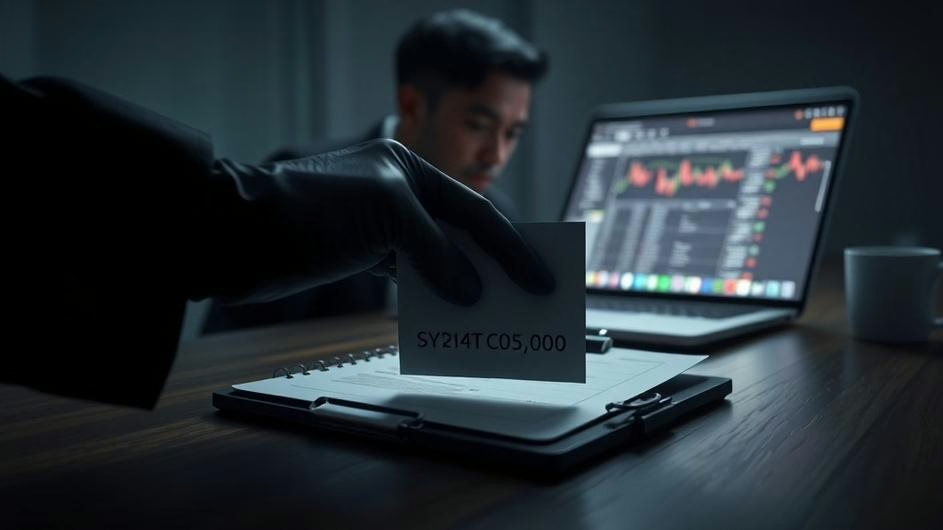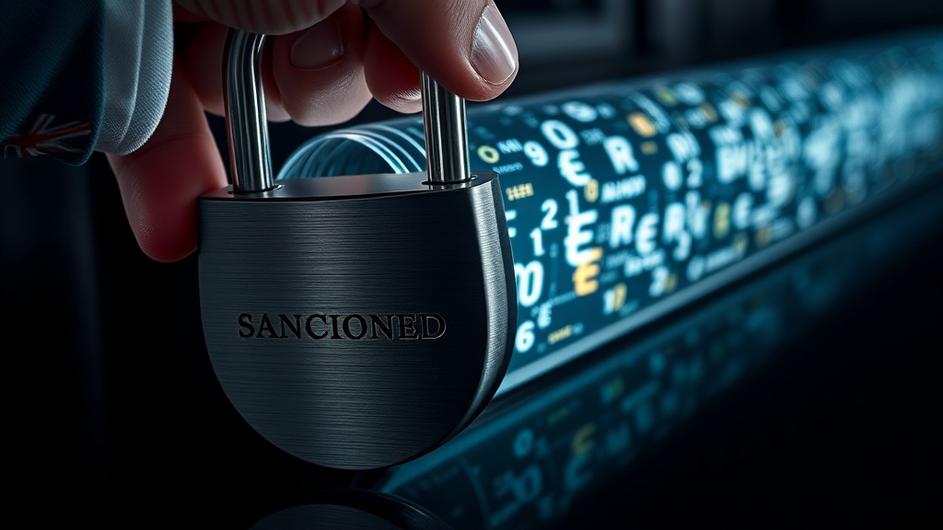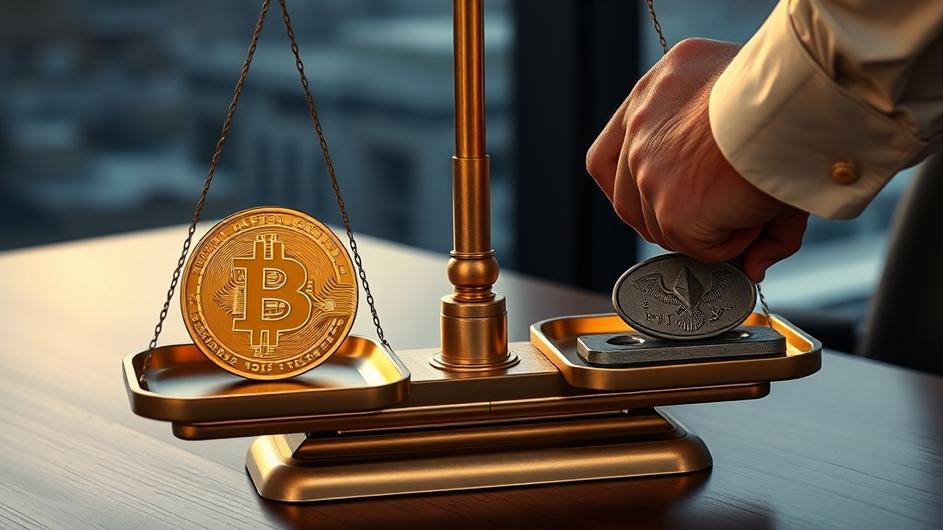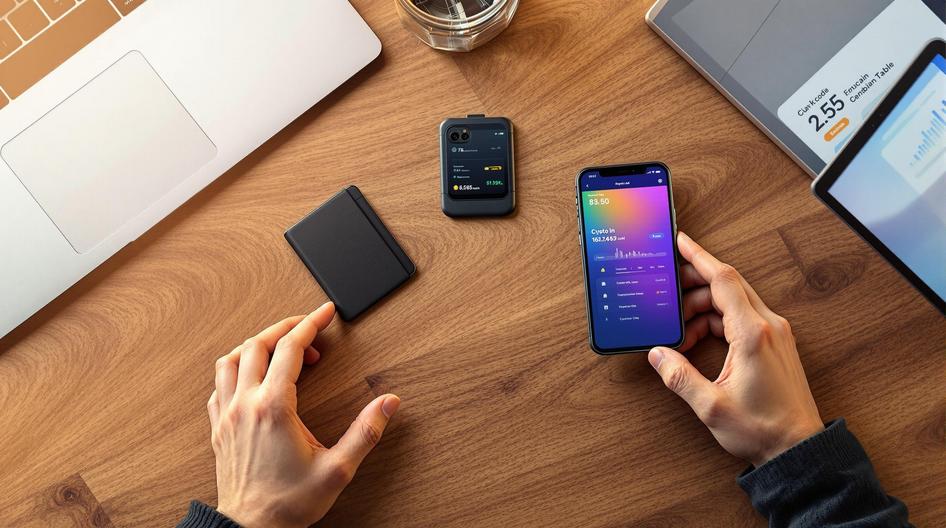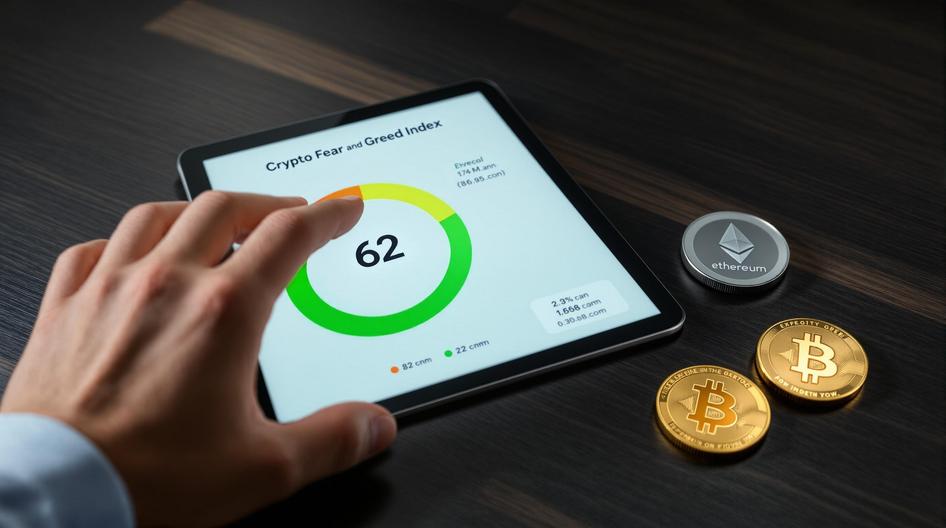
8 Best Crypto Wallets of August 2025
Diving into the world of cryptocurrency is thrilling, but as more people start trading, the risks of theft and fraud are climbing, too. It’s a bit like the Wild West out there. That’s why getting a handle on how crypto works, where you can store it, and what makes a good crypto wallet is more important than ever. Whether you’re looking at a digital app or a physical device, picking the right one is key to keeping your assets safe.
What to Know About Crypto Wallets
So, what’s the deal with crypto wallets? Think of them as your personal vault for digital money. You absolutely need one to hold your cryptocurrencies. They generally come in two flavors: hot wallets, which are software apps on your phone or computer, and cold wallets, which are usually small physical devices you can hold in your hand.
The best hot wallets are super secure and a breeze to use, while the best cold wallets are compact and won’t break the bank. If you’re serious about your crypto journey, you’ll want a non-custodial wallet. What does that mean? It means you—and only you—have the keys to your crypto. You have complete ownership, no strings attached. Many of these wallets also let you swap different coins right inside the app by connecting to a crypto exchange.
Some people who are searching for wallets are actually after a crypto exchange. If you’re more interested in a platform for buying and selling crypto without managing a separate wallet, you might want to check out our guide on the Best Crypto Exchanges.
How We Chose Our Top Picks
Our team has been in the crypto trenches for years, researching and testing wallets. We didn’t just browse a few websites; we talked to experts, consulted authoritative sources, and dug deep into what makes a wallet great. We identified over 30 critical factors, from security audits and Web3 compatibility to staking options and the number of supported coins. It was a huge undertaking, but it helped us separate the best from the rest. You can read our full methodology to see all the nitty-gritty details.
Our Top Picks for the Best Crypto Wallets
Exodus – Best Crypto Wallet Overall
Exodus is a fantastic all-rounder, especially if you’re managing a diverse portfolio of different coins. It supports assets across more than 50 blockchain networks, offers thousands of trading pairs, and has a built-in crypto swapping feature. It’s also incredibly user-friendly and consistently scores high on security, making it a solid choice no matter your experience level.
Pros:
- Supports assets on over 50 blockchain networks
- Integrates with Trezor hardware wallets
- Lets you swap crypto directly in the app
- Top-notch security marks
Cons:
- You can’t control the exact transaction fees
- Lacks third-party audits
HIGHLIGHTS
| Platform(s) | Android, Brave, Chrome, iOS, Linux, Mac, Windows |
| CER Security Rating | AAA |
| CertiK Skynet Score | 84.25 (A) |
Zengo – Best Crypto Wallet for Beginners
Getting started with crypto can be intimidating, but Zengo makes it easy. It gets rid of complicated seed phrases and private keys, using a keyless security model called multi-party computation (MPC) instead. With its beautiful design, 24/7 live customer support, and a simple setup process, Zengo is one of the most beginner-friendly wallets out there.
Pros:
- No need for seed phrases or private keys
- 24/7 customer support
- Intuitive, user-friendly interface
- Simple setup process
Cons:
- Supports a limited number of crypto networks
- Fees on the in-app exchange can be high
HIGHLIGHTS
| Platform(s) | Android, iOS, Linux, Mac, Windows |
| CER Security Rating | AAA |
| CertiK Skynet Score | 84.71 (A) |
Sparrow – Best Crypto Wallet for Bitcoin
For the Bitcoin purists, Sparrow offers unparalleled control. This lightweight desktop wallet lets you manage your Bitcoin and transaction fees precisely. You can connect to public servers, private ones, or even your own Bitcoin Core. It includes a transaction editor that doubles as a blockchain explorer and supports the Lightning Network for faster, cheaper payments. It’s built for those who really know their way around Bitcoin.
Pros:
- Lightweight desktop wallet for multiple platforms
- Supports all common hardware wallets
- Comprehensive transaction editor
- Multiple server connection options
Cons:
- You need a good understanding of how Bitcoin works
- No built-in token swaps or fiat onramps
HIGHLIGHTS
| Platform(s) | Linux, Mac, Windows |
| CER Security Rating | Not applicable |
| CertiK Skynet Score | Not applicable |
BlueWallet – Best Mobile Bitcoin Wallet
BlueWallet packs advanced Bitcoin features into a sleek and intuitive mobile app. Managing your Bitcoin feels less like a chore and more like a breeze. It supports Lightning wallets for quick trades, allows for batch transactions, and even sends you push notifications to keep you updated on your wallet’s activity. It’s a powerhouse for Bitcoin users on the go, whether on an Android or Apple device.
Pros:
- Modern design with a user-friendly interface
- Supports Lightning, multi-signature, and watch-only wallets
- Push notifications for your Bitcoin wallets
- Wide variety of transaction options
Cons:
- Not many educational resources
- Features can be highly technical
HIGHLIGHTS
| Platform(s) | Android, iOS, Mac |
| CER Security Rating | Not applicable |
| CertiK Skynet Score | Not applicable |
Trust Wallet – Best Mobile Crypto Wallet
If you live on your phone, Trust Wallet is a fantastic choice. It boasts massive support for countless coins, NFTs, and other Web3 projects. It’s highly rated for security and has one of the largest lists of supported assets of any wallet we reviewed. Thanks to its clean interface and in-app token swaps, it’s one of the easiest mobile wallets to use.
Pros:
- View your Ethereum and BNB Chain NFTs natively
- Clean, simple interface designed for mobile
- Supports a massive number of coins
- Swap tokens directly inside the wallet
Cons:
- Limited customization for transaction fees
- No live customer support
HIGHLIGHTS
| Platform(s) | Android, Brave, Chrome, Edge, iOS, Opera |
| CER Security Rating | AAA |
| CertiK Skynet Score | 85.24 (A) |
MetaMask – Best Web3 Wallet
MetaMask is the undisputed king of Web3 wallets. Why? It connects seamlessly with thousands of decentralized finance (DeFi) apps and NFT marketplaces. It combines robust security with customizable transaction settings and built-in slippage controls, making it a favorite for both newcomers and seasoned pros exploring the decentralized web.
Pros:
- Works with thousands of dApps
- Expand functionality with third-party plugins
- Receives frequent security updates
- Boasts a 99.99% transaction success rate
Cons:
- Doesn’t support Bitcoin or Solana natively
- Network configuration can be complex
HIGHLIGHTS
| Platform(s) | Android, Brave, Chrome, Edge, iOS, Opera, web |
| CER Security Rating | AA-AAA |
| CertiK Skynet Score | 89.87 (AA) |
Trezor Model One – Best Entry-Level Hardware Wallet
The Trezor Model One was a true pioneer—the first hardware wallet ever created to safeguard your private keys offline. Released back in 2014, it’s still one of the most affordable options today at just $49. It may not be the flashiest, but its simple, hands-on transaction verification and PIN entry make it a reliable and secure starting point for anyone new to cold storage.
Pros:
- Confirm all transactions directly on the device
- Protected by a passphrase and PIN
- Open-source security and design
- Very affordable price
Cons:
- Doesn’t support some popular coins like Cardano and Solana
- The guided tutorial costs extra
HIGHLIGHTS
| Platform(s)* | Android, iOS, Linux, Mac, Windows |
| Dimensions | 2.4 x 1.2 x 0.2 inches |
| CER Security Rating | C |
*Security rating and platforms for the brand’s official app, Trezor Suite.
Ledger Nano Flex – Best High-End Hardware Wallet
The Ledger Flex is packed with features that boost both usability and security. It sports a 2.84” touchscreen and a tamper-proof chip for storing your private keys. What makes it stand out is its near-field communication (NFC) chip, which allows it to connect to other devices seamlessly while keeping your critical data offline and safe from hackers. It represents the cutting edge of the crypto wallet world.
Pros:
- Review and sign transactions on a single screen
- E Ink® display is easy to read
- Supports over 5,500 coins and tokens
- Features a top-tier CC EAL6+ secure element chip
Cons:
- Added connectivity introduces more potential vulnerabilities
- Requires Ledger Live for full functionality
- Still new and relatively untested
HIGHLIGHTS
| Platform(s)* | Android, iOS, Linux, Mac, Safari, Windows |
| Dimensions | 3.07 x 2.22 x 0.33 inches |
| CER Security Rating | CCC |
*Security rating and platforms for the brand’s official app, Ledger Live.
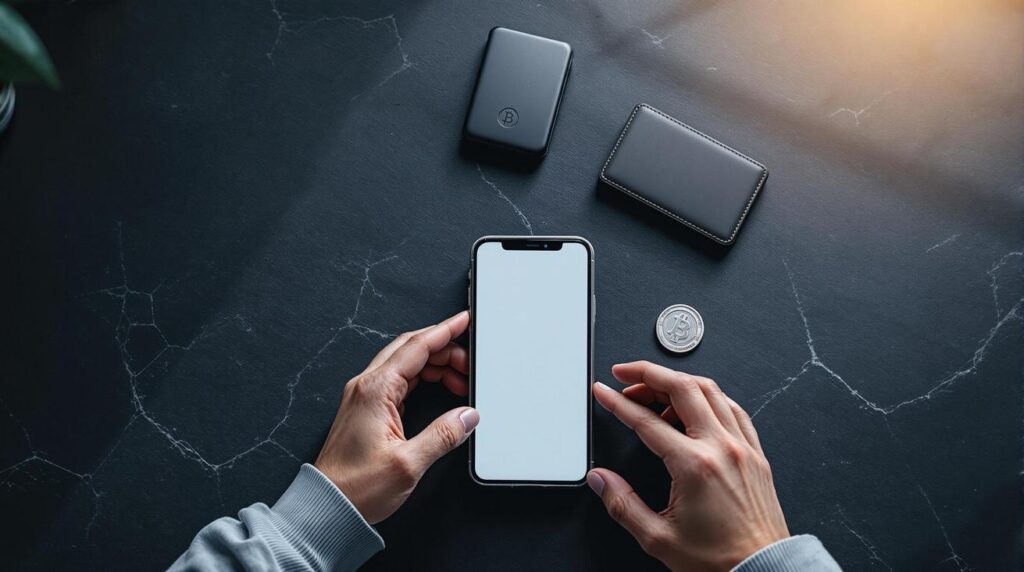
Other Crypto Wallets We Considered
Best Wallet
Best Wallet has a polished mobile interface and connects easily with DeFi apps. It also has built-in portfolio tracking and token swaps. A unique perk is its anonymity—you don’t need to provide personal info to open an account.
Why it didn’t make the cut: It’s still the new kid on the block and lacks the long-term track record of our top picks. But its future looks promising!
Coinbase Wallet
Backed by a trusted name, Coinbase Wallet supports tons of assets and dApps. It has great security features and an educational “Quests” section where you can earn crypto while you learn.
Why it didn’t make the cut: It lacks the advanced tools of other non-custodial wallets, and its close ties to the centralized Coinbase platform might worry some users.
Tangem
Tangem is unique with its credit card-sized hardware that requires no battery or cables. Its security is top-notch, with an EAL6+ certified chip (the same level used in passports) and multiple independent audits.
Why it didn’t make the cut: Its security model, while innovative, might not appeal to users who prefer open-source verification. It also supports fewer assets than other hardware wallets.
What You Need to Know About Crypto Wallets
Here’s a little secret: crypto wallets don’t actually *store* your crypto. Confusing, right? What they really hold are your “keys”—the digital codes that give you access to your coins on the blockchain. Think of the blockchain as a giant, public record of every transaction.
When someone sends you crypto, they’re just updating the blockchain to show that you are the new owner. Your wallet uses two types of keys to make this happen:
- A public key: This is like your bank account number. You can share it with others to receive funds. It’s a long string of letters and numbers, like B1fpARq39i7L822ywJ55xgV614.
- A private key: This is like your account password. It proves you own the crypto, and you should *never* share it with anyone.
Think of it like an email account. Your public key is your email address, which you give out freely. Your private key is your password, which you keep secret. Together, they let you send and receive crypto securely. Your wallet is your gateway to the blockchain.
Types of Crypto Wallet
There are two main types of crypto wallets: hot and cold. The main difference is their connection to the internet.
Hot Wallets
Hot wallets are always online. They are software programs on your phone, desktop, or in your web browser. Their biggest advantage is convenience—you can access your funds from anywhere with an internet connection, making them great for frequent traders. But that constant connection also makes them more vulnerable to cyberattacks.
Cold Wallets
Cold wallets are designed to be offline and ultra-secure. They store your keys on a physical device, like a USB drive, or even on paper. This makes them nearly impossible to hack remotely. The downside? If you lose the device and don’t have a backup, your crypto could be gone forever.
What to Look for in a Crypto Wallet
Before you choose a wallet, ask yourself a few questions:
- How often will I trade? If you’re trading frequently, a hot wallet is more practical. If you’re planning to HODL (Hold on for Dear Life), a cold wallet is safer for long-term storage.
- What do I want to trade? Make sure the wallet you pick supports the cryptocurrencies you’re interested in, both now and in the future.
- How much am I willing to spend? Most hot wallets are free, but hardware wallets have an upfront cost. Consider the fees, too.
- What features do I need? Do you want to do more than just buy and sell? Some wallets offer features like staking, which lets you earn passive income on your crypto.
Investing in Crypto Prudently
Cryptocurrencies are exciting, but they’re still a new and wild frontier. The idea of a decentralized currency is revolutionary, but the price swings can be stomach-churning. Remember Dogecoin? It started as a joke and soared to a $90 billion market cap thanks to Elon Musk and Reddit. Then there’s Hawk Tuah, which rocketed to a $490 million market cap before crashing 90% in a few hours—a classic pump-and-dump scam.
It’s not just memecoins. Even Bitcoin has had massive crashes. The bottom line? Cryptocurrencies are highly volatile and unpredictable. Here’s what to keep in mind:
- Crypto is volatile. Prices can skyrocket or plummet overnight. This isn’t like the stock market.
- Crypto isn’t backed by anything. Unlike government-backed money or stocks tied to company performance, most coins have no underlying asset. Their value is purely speculative. Many people from Apple and Google have invested and lost it all.
- Crypto is unregulated. Governments are still figuring out how to handle crypto. In the U.S., agencies like the SEC and IRS have some oversight, but there’s no single body protecting consumers from the many scams and crimes in the space.
Latest News
It seems digital assets are the investment of choice for Gen Z. A recent YouGov report found that Gen Zers are four times more likely to own crypto than a retirement account. They prefer using crypto exchanges over traditional banks and are less likely to work with a financial advisor.
At the same time, as confidence in direct crypto ownership has slipped, many investors are turning to ETFs for exposure. A 2024 study showed that financial planners most commonly recommend ETFs, making Bitcoin and Ethereum ETFs a noteworthy alternative.
Best Crypto Wallet FAQs
Are crypto wallets free?
Many hot wallets (apps, browser extensions) are free to download and use. However, they might charge fees for in-wallet crypto swaps. Cold wallets, which are physical devices, have a one-time purchase cost, ranging from about $49 to over $500.
Can I have more than one crypto wallet?
Absolutely! Many people use multiple wallets. For example, you might use a hot wallet for daily trading and a cold wallet to store your long-term holdings securely. It’s a great way to diversify risk and organize your assets.
Do I need a wallet to buy crypto?
While you can buy and store crypto directly on an exchange, it’s highly recommended to have your own wallet. It gives you much more security and full control over your private keys. As the saying goes, “Not your keys, not your coins.”
What happens if I lose my crypto wallet?
You can usually recover a lost wallet using your seed phrase—a sequence of 12 to 24 words you get during setup. But be warned: if you lose your seed phrase, your crypto is likely gone for good.
Are hot wallets or cold wallets safer?
Cold wallets are generally safer because they keep your keys offline, making them immune to online threats. Hot wallets are more convenient but are always connected to the internet, leaving them more exposed. Choosing between them is one of the most important decisions for anyone looking for the best crypto wallets for their needs.
Methodology
Our team at Money closely examined 44 crypto wallets—26 hot and 18 cold—evaluating them on security, functionality, and user experience. We recognized that hot and cold wallets have different features, so we tailored our criteria accordingly. For instance, since cold wallets don’t appear on most security rating platforms, we placed extra emphasis on third-party audits.
Security
Security was our top priority. We started by checking scores from trusted assessment sites like Certik, Coinspect, and CERtified, which rate wallets on bug bounty programs, security incidents, and penetration tests. For wallets not listed, we conducted our own deep dive into their network security, authentication methods, and code audits.
Functionality
We focused on trading features, favoring wallets with a wide range of tradable assets, live charts, Web3 support, and staking. For Bitcoin-only wallets, we looked for features that speed up transactions, like Lightning Network support. We even consulted with a BofA analyst to understand what makes a wallet truly functional in today’s market.
User Experience
A wallet is useless if you can’t figure out how to use it. We prioritized wallets with intuitive interfaces, 24/7 live support, and helpful educational content. For cold wallets, we also assessed their size, screen quality, and overall design.
Summary of Our Top Picks
- Exodus – Best Crypto Wallet Overall
- Zengo – Best Crypto Wallet for Beginners
- Sparrow – Best Crypto Wallet for Bitcoin
- BlueWallet – Best Mobile Bitcoin Wallet
- Trust Wallet – Best Mobile Crypto Wallet
- MetaMask – Best Web3 Wallet
- Trezor Model One – Best Entry-Level Hardware Wallet
- Ledger Nano Flex – Best High-End Hardware Wallet
Citations
- https://techdailyupdate.com/ultimate-android-guide-4/
- https://techdailyupdate.com/ninety-laptops-and-a-17-million-scam-how-one-us-woman-helped-north-korea-infiltrate-american-tech/
- https://techdailyupdate.com/the-latest-from-apple/
- https://techdailyupdate.com/bofa-analyst-crypto-coin-hood/
- https://techdailyupdate.com/huawei-ai-shakes-silicon-valley-2/
- https://money.com/best-crypto-wallets/
- https://m.markets.com/research/best-crypto-wallets-for-2025-zengo-crypto-com-guarda-exodus
- https://www.devopsschool.com/blog/top-10-cryptocurrency-wallets-in-2025-features-pros-cons-comparison/
- https://changelly.com/blog/best-crypto-wallets/
- https://www.nerdwallet.com/p/best/investing/crypto-bitcoin-wallets











































